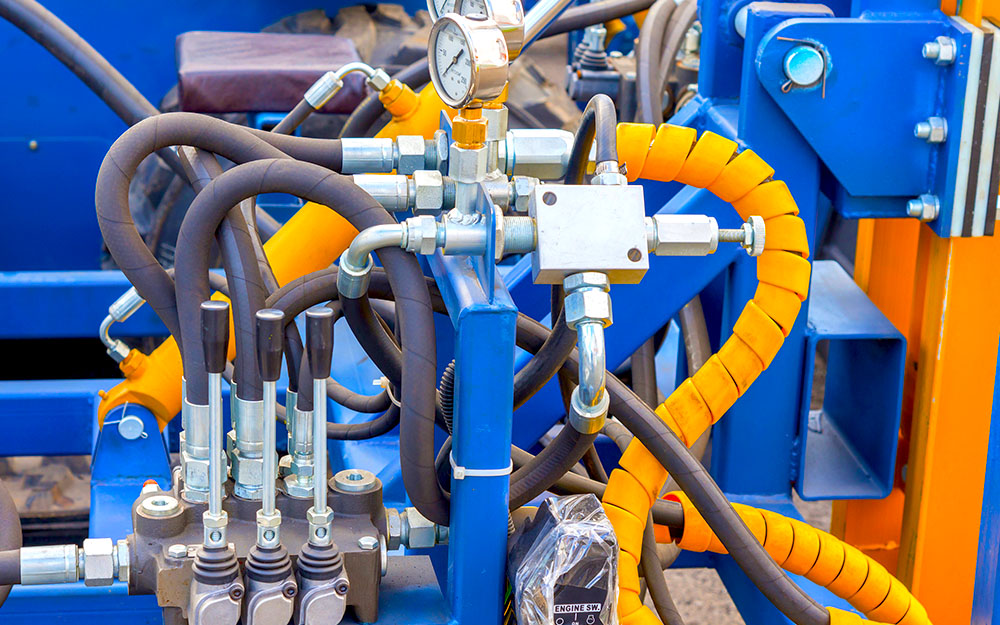I once had a customer call to request I visit them at their own customer's site to help with a "breakdown." I'm always down to help a customer, so I gladly paid a visit. Arriving on-site, many looming pieces of machinery greeted me in a heavy equipment yard. An excavator sat atop a float trailer itself resting on the ground. This float trailer disconnects at the fifth wheel to allow the front end to lower under gravity. These trailers load from the front and then reconnect to the fifth wheel assembly, where a hydraulic package lifts the trailer once again, ready for transportation.
The technician complained that the trailer's standard hydraulic package was not strong enough to lift this massive machine, or the components were now tired and worn. Regardless, when I came on the scene to investigate, the technician described his attempt to modify the hydraulics to provide the “power” needed to lift the load. As a matter of fact, the pump was brand new but was actually causing the gas motor to stall.
His solution was to install a larger pump, because, of course, why wouldn't a larger pump provide more power? The logical fallacy that bigger is better persists through society and is not limited to fluid power. The technician connected like with like, the same way a larger baseball bat hits a baseball farther. Most forget the baseball bat doesn’t do the hitting; the player does. A larger bat does nothing when the person swinging remains the same.
This fallacy of the larger pump is much more common than I'd like to believe because you can't get something for nothing. The technician wanted more force to lift the trailer and thought the larger pump provided more force. A larger pump provides increased flow by employing larger gears, vanes or pistons. However, force is limited to the designed maximum pressure of the system combined with the actuators' size.
In fact, if the technician were trained in fluid power, he'd first try to get away with adjusting the relief valve to raise the maximum pressure. A small increase in pressure to the very large cylinders installed on this trailer would yield a significant force advantage. Of course, we make two assumptions to win at this trick.
First, we must assume the relief valve is not already set to its maximum value or is even adjustable at all. Secondly, we must assume the prime mover itself has the extra power capacity. You see, just as the baseball player swings the bat to create homerun power, so too does the gas engine on this hydraulic power unit generate the power to eventually lift the load.
In this case, a five horsepower gas engine provided the motivation to ultimately lift a 50,000 lb excavator. Highly inefficient, you’re lucky if half its rated power is available to do useful work. Needless to say, raising the pressure was not an option in this case, especially since our larger pump was already eating up our excess power. In fact, the larger pump was actually the cause of the stalled motor.
Hydraulic power is equally factored by pressure and flow, so increasing one must result in a decrease of the other for any given input of power. The technician should have actually downsized his pump to create less flow and then turned the relief valve setting up to make the extra force. My recommendation also included the advice to remain within the limits of the hydraulic system components, and of course, that he should never expect to get something for nothing.

